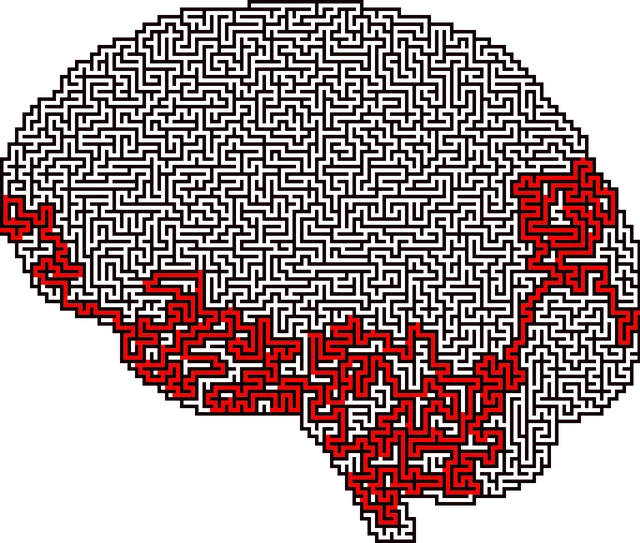The Crisis Intervention Team (CIT) training equips professionals with skills to handle mental health crises empathetically and culturally sensitively. Through role-playing, workshops, and education, participants learn to recognize distress signs, de-escalate situations, and connect individuals with local support networks like the Parker Kaiser Permanente mental health hotline at [insert number]. This comprehensive approach enables CIT team members to provide immediate crisis intervention and facilitate post-crisis care, utilizing resources effectively for long-term recovery.
In today’s challenging social landscape, effective crisis intervention is more crucial than ever. Crisis Intervention Team (CIT) training programs equip individuals with vital skills to support those in distress. This article explores the essence of CIT training, highlighting key components for success. From understanding the program’s foundation to leveraging resources like the Parker Kaiser Permanente mental health appointment phone number, this guide equips readers with knowledge to make a tangible difference.
- Understanding Crisis Intervention Team (CIT) Training Programs
- Key Components of Effective CIT Training
- Parker Kaiser Permanente Mental Health Appointment Phone Number: A Resource for Support
Understanding Crisis Intervention Team (CIT) Training Programs

Crisis Intervention Team (CIT) training programs equip individuals with the skills to respond effectively during moments of crisis. These comprehensive courses are designed to foster a deeper understanding of mental health challenges and promote empathy among team members. By learning Empathy Building Strategies and Compassion Cultivation Practices, participants gain valuable insights into navigating complex situations with care and professionalism.
The training often includes role-playing scenarios, presentations by mental health professionals, and interactive workshops. A key component is learning to recognize signs of distress and providing appropriate support. For instance, individuals may be trained to make crucial decisions regarding mental wellness appointments, such as contacting the right facilities like the Parker Kaiser Permanente mental health hotline (phone number: [insert number here]) during emergencies, ensuring timely and effective interventions.
Key Components of Effective CIT Training

Effective crisis intervention team (CIT) training programs are multifaceted and crucial in equipping professionals to handle mental health crises. A comprehensive curriculum should include theoretical knowledge, practical skills, and a deep understanding of the unique challenges faced by individuals experiencing severe emotional distress or suicidal ideation. The first step involves mental health education programs design that focus on recognizing warning signs, understanding the individual’s experience, and de-escalation techniques. This foundational layer equips team members to approach crises with empathy and cultural sensitivity, ensuring every interaction is safe and respectful.
Additionally, risk management planning for mental health professionals plays a pivotal role in CIT training. Training should emphasize evidence-based strategies for risk assessment, safety planning, and crisis de-escalation. Team members learn to create structured plans tailored to individual needs while prioritizing the client’s well-being. Integrating community outreach program implementation also enhances the program’s effectiveness, fostering connections between mental health services and local support networks. This holistic approach ensures that CIT team members are prepared not only to intervene during crises but also to navigate post-crisis care, promoting long-term recovery for those in need, and utilizing resources like the Parker Kaiser Permanente mental health appointment phone number effectively when required.
Parker Kaiser Permanente Mental Health Appointment Phone Number: A Resource for Support

In moments of crisis, immediate support is crucial. The Parker Kaiser Permanente mental health appointment phone number stands as a vital resource for those seeking help. This dedicated line offers a confidential and accessible point of contact, ensuring individuals can connect with trained professionals who provide trauma support services and conflict resolution techniques tailored to their unique needs.
Cultural sensitivity in mental healthcare practice is a key aspect of these interventions. By leveraging the expertise available through this phone number, individuals can expect a supportive environment that respects their cultural background and perspectives, fostering effective communication and treatment plans. Whether it’s navigating complex emotions or understanding specific cultural contexts related to mental health, this resource plays a pivotal role in promoting positive outcomes.
Crisis intervention team (CIT) training programs are vital resources for fostering effective support systems, especially in navigating the challenges of mental health crises. By equipping individuals with the necessary skills and knowledge, these programs empower communities to respond sensitively and efficiently. The key lies in comprehensive training that covers a range of aspects, from understanding crisis dynamics to implementing de-escalation techniques. With proper education, we can ensure that those in need receive the appropriate care, ultimately enhancing the effectiveness of support systems like the Parker Kaiser Permanente mental health appointment phone number.






